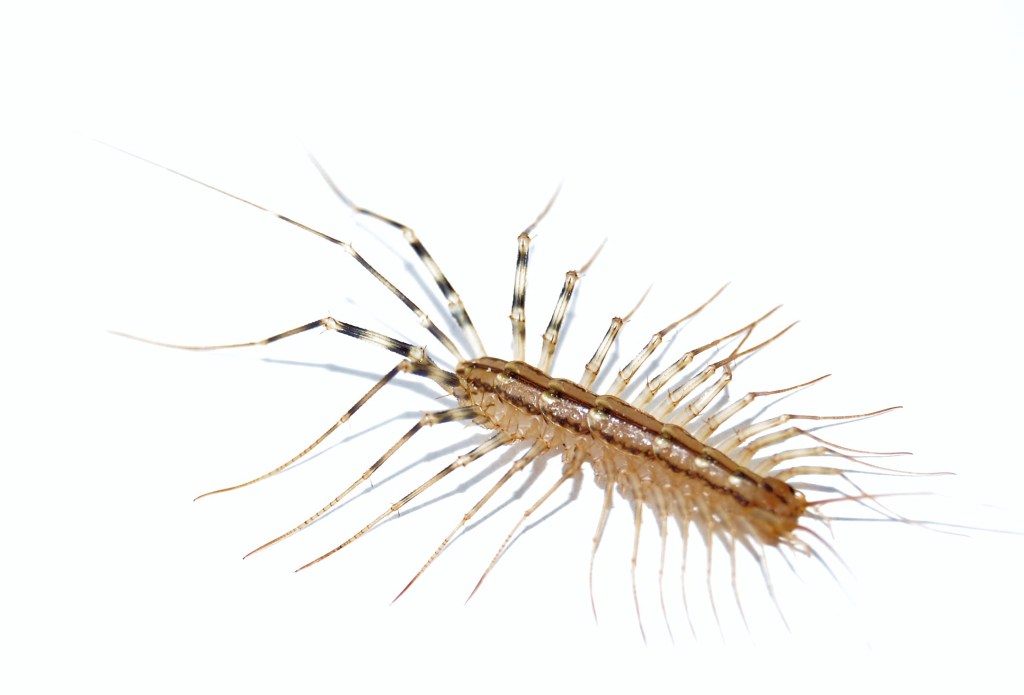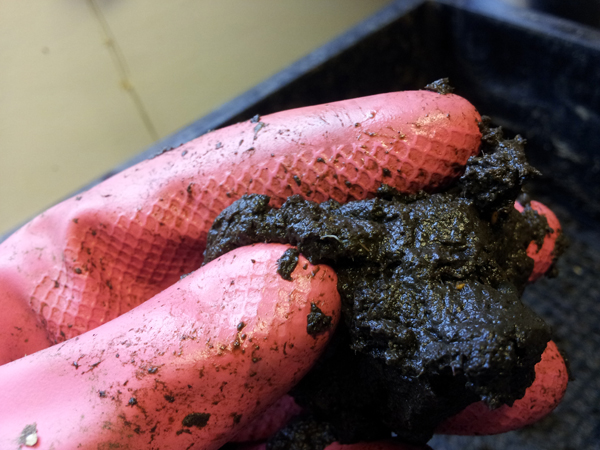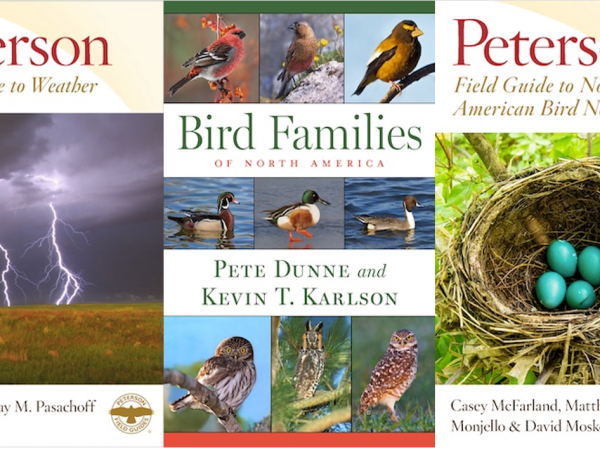I’ve been called a lot of strange things in my life, but I never thought I could be called a nematode-lover.
I certainly never envisioned a day when my wife would start referring to house centipedes – those terrifying huge invertebrates that seem to have a million legs and run at top speed – as our “honored guests.”
We’re definitely not “bug people,” so what turned us around?
As an ecologist, I can appreciate that even unlovable critters serve valuable functions in nature like decomposing organic matter and keeping the populations of other organisms in check.
Then again, I never thought the indoors had room for biodiversity or strange “guests.” Living in the aptly named “eco-house” in college (where a dirt floor basement and holes in the walls contributed to hefty populations of slugs, moths, flies, and more) forced me to get used to it, but it certainly wasn’t my ideal living situation.
So you can imagine my unhappiness when I discovered several years ago that I’d moved into a condo chock full of house centipedes.
Then the ecologist in me started wondering why they were there, and what would happen if I successfully got rid of them. I knew that getting rid of wolves in Yellowstone led to a number of problems (e.g. higher elk populations started to wipe out cottonwood groves), and that the centipedes wouldn’t be there if they weren’t finding something to eat.
It turns out house centipedes actually eat cockroaches, ants, bed bugs, moths that can eat clothes, and other household pests.
We don’t keep a pristine house, and living in a condo there are always cockroaches and ants somewhere nearby, waiting to strike. When we realized that these beasts were our front line against even more unsavory bugs, our attitudes towards them changed; after all, the enemy of my enemy is my friend.
No more vacuuming them up, and no more trying to bring the humidity levels low enough to make them unwelcome.
A Few Million Nematodes
When our household worm compost bin (another adventure in urban ecology) got infested with fruit flies, we naturally wondered about biological controls.
While there were many species of mites, springtails, and other tiny bugs in our bin, we were missing predators.
I ordered a few million nematodes (a kind of tiny roundworm) by mail. Within a few weeks (long enough for the adult flies to die off and their larva to have been eaten) we had a fly-free bin. To this day, I smile when I see the tiny little white thread-like nematodes patrolling my compost bin, looking for new larvae to eat.
My wife has made it clear that bringing in spider eggs from outside to take care of the occasional housefly is going too far.
But we’ve learned that whether we like it or not, we do share our homes with a variety of other creatures.
Rather than dive into a spiral of ever-increasing applications of poison or traps, we’ve been learning to love our allies, no matter how creepy they may be.
(Photos: Centipede by Flickr user robswatski under a Creative Commons Sharealike license; nematodes by Jon Fisher/TNC under a Creative Commons Sharealike license).





House centipedes are awesome. The misinformation on this insect is egregious. Large numbers of house centipedes are eating and indicate that there are pests that most don’t want in their house ..
Excellent predator as well as indicator that there is a pest problem but the house centipede isn’t one of them !
Ok , so , I guess,
the enemy of my enemy , is my…..acquaintance , as I have always counted on spiders to keep ants , etc , in check .
That being said , I know , all , centipedes \milipedes , are poisones , how bad , is their bite\sting ?
Yes, I love house centipedes. And spiders and snakes and … . Maybe because I was raised in the deep woods of northwest New Jersey after WWII and came to feel at one with everything around me. I recognize you as a fellow non-earthling. If someone were to call either of us normal or average, we would silently feel insulted, wouldn’t we. After I reluctantly left the woods I got BS and MS degrees in physics, and then after about 10 years of various accomplishments and hardships, I became a doctor of chiropractic and went into solo practice for 20 years. During that time I engaged in various, spontaneous things. I won a 10-mile running race, I had a 5-morning-a-week live talk show on the local radio station, and I gave an off-the-cuff talk to a large room full of state prison inmates. After that I taught physics and math at WNCC and UNR in western Nevada. For the past 13 years I’ve conducted my own agricultural research on perennial, prolific, food-producing plants hardy to the high desert of northern Nevada. I’m now in the process of moving to a horse ranch in Minden, Nevada, where I will be landscaper and groundskeeper for what, at the moment, is 10 acres of sagebrush, tumbleweeds, and wild grass. Oh, dear. Why am I telling you all this? Maybe because I’m an ADD non-earthling scientist, and I get excited when I meet a kindred spirit. I’ve never lived in a western desert ranch environment before. When I get there I’ll assess the need for house centipedes. I kind of hope I’ll need some.
I have come to actually like centipedes too. I remember once when my husband was trying to kill one with his slipper that was high up on our bedroom wall near the ceiling. He whacked it with the slipper. He got part of it. As it was falling down, we both actually heard it screaming on its way down, with a very thin, high-pitched scream! Really amazing, and weird! Also, when (in my killing days) I would corner one in the bathroom for instance trying to whack it, it didn’t know which way to run. It looked so scared trying to get away from me. It made me feel sorry for it. Now that I know centipedes kill other bugs, they are my friends for sure.
I call them Scooties because they scoot and the scientific name is scutigera coleoptrata. Scooty sounds much friendlier than house centipede 🙂
Found one in my dog’s food bowl this morning – it couldn’t get out because the ceramic was so smooth, but of course I shrieked and as I usually do, sprayed it with bleach cleaner and then put it down the drain and garbage disposal. But as I think about it, I feel bad because I probably tortured it with the spray – it looked like it was in agony for a few seconds there – AND to make matters worse (and this is the second time this has happened in the recent past), it knew where I was when I carried the bowl to the sink, it tried to hide on the inside of the bowl so I wouldn’t see it! Another centipede did this earlier this summer when I caught it in my sink – it went up the wall halfway so I couldn’t see it (of course I killed it). This seems to me to be a very smart creature just looking to survive. Yet…..I don’t want them crawling around me and my dogs – as I found one once crawling on my pillow and I can’t have that……
Wait until you get bitten by one, i got a nasty infection after waking up in the middle of the night with one digging into my arm.
I’m new here and was fascinated by most of the topics. I was only researching the creepy centipede that chased me in my house when I decided to explore the site more. I’m 44 and am in school to be a compliance officer (eventually the boss!) for OSHA. My concentration is on construction & sustainability. I mean, can’t future construction sites be built around safety & contribute TO the environment at the same time? I was told that I need a mentor who’s brain I could pick. Not to into linkdin just because that’s just weird, so I need Mr. John Fisher in my life. Ppl usually don’t even know what OSHA is, let alone how to help guide me on my journey. Can someone please direct him to my email address. I’m also painfully private so I will respect his if he’s not interested. Thanks for reading! -Dawn
I had seen a few centipedes in my home – usually, put them outside with a paper towel. I do not kill them. They serve a purpose.
Lots of spiders over last 4 months – live by lake, centipedes were controlling that, I think?
What almost “haunts me” – is that I had seen a centipede – big one in bathroom (mid am 2 – 3 am) – we had cornered it between the baseboard and bathtub – he was “conforming to the wall” hiding out. Very intelligent bug – just surviving. Wish we didn’t put him away. lesson learned.
my hand poked by centipede while watching movie..panicked at first but looking how fast it slithers away..,such timid creature unlike roaches even when shooed still have the ball to eat with you..ridsect away!!